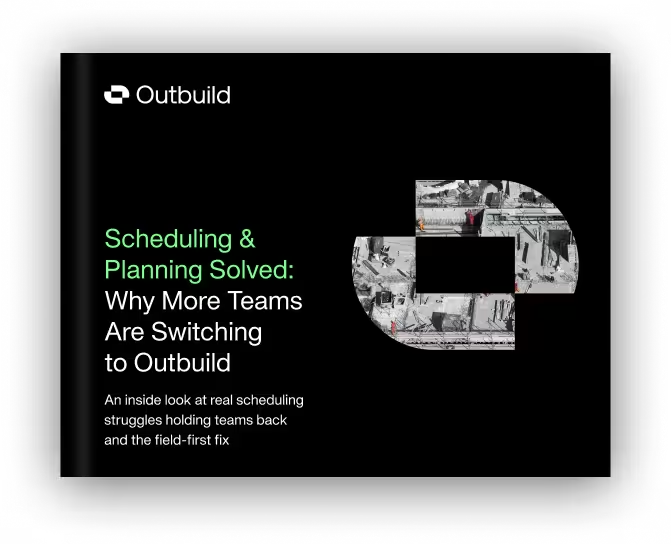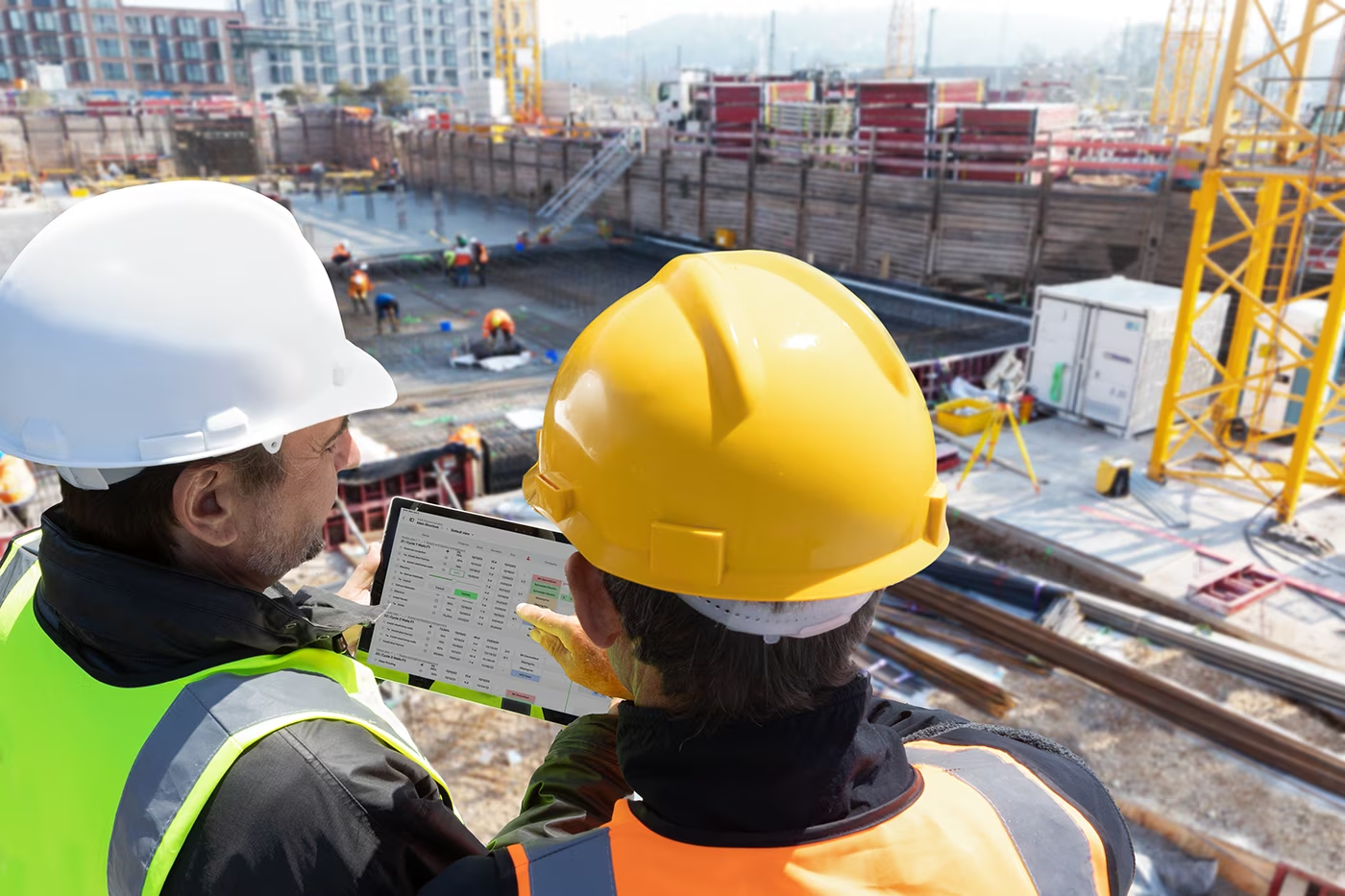Outbuild is online scheduling software to work together on connected project schedules and look-aheads, enabling everyone to move faster.
Key Takeaways
Table of contents
- Understanding the Role of a Construction Project Manager
- Essential Skills for Effective Project Management
- Building Strong Communication
- Mastering Time Management in Construction Projects
- Budgeting Basics: Keeping Your Project Financially Healthy
- Navigating Regulatory Compliance and Safety Standards
- Utilizing Technology to Enhance Project Efficiency
- Strategies for Conflict Resolution on the Job Site
- The Importance of Stakeholder Engagement and Management
- Frequently Asked Questions
Managing a construction project from start to finish is no small task. A good construction project manager knows how to lead people and improve processes. They keep communication clear and bring together subcontractors, trades, and stakeholders to finish the job.
It takes precision, leadership, and the right tools to keep projects on track and under budget.
This guide explains how to succeed as a project manager in construction. It also offers practical tips to help you grow your career and lead with confidence.
A construction project manager oversees every aspect of a construction project, ensuring a smooth workflow from inception to completion. Their responsibilities include:
- Planning and Scheduling: Creating logical project schedules to coordinate the construction team and meet deadlines.
- Budget Management: Monitoring project costs and controlling spending to maintain profitability.
- Team Leadership: Guiding subcontractors, and other stakeholders toward a common goal is a key component of effective leadership.
- Risk Management: Identifying potential risks and developing mitigation plans to prevent delays and budget overruns.
- Quality Control: Ensuring the project meets industry standards and client expectations to minimize rework.
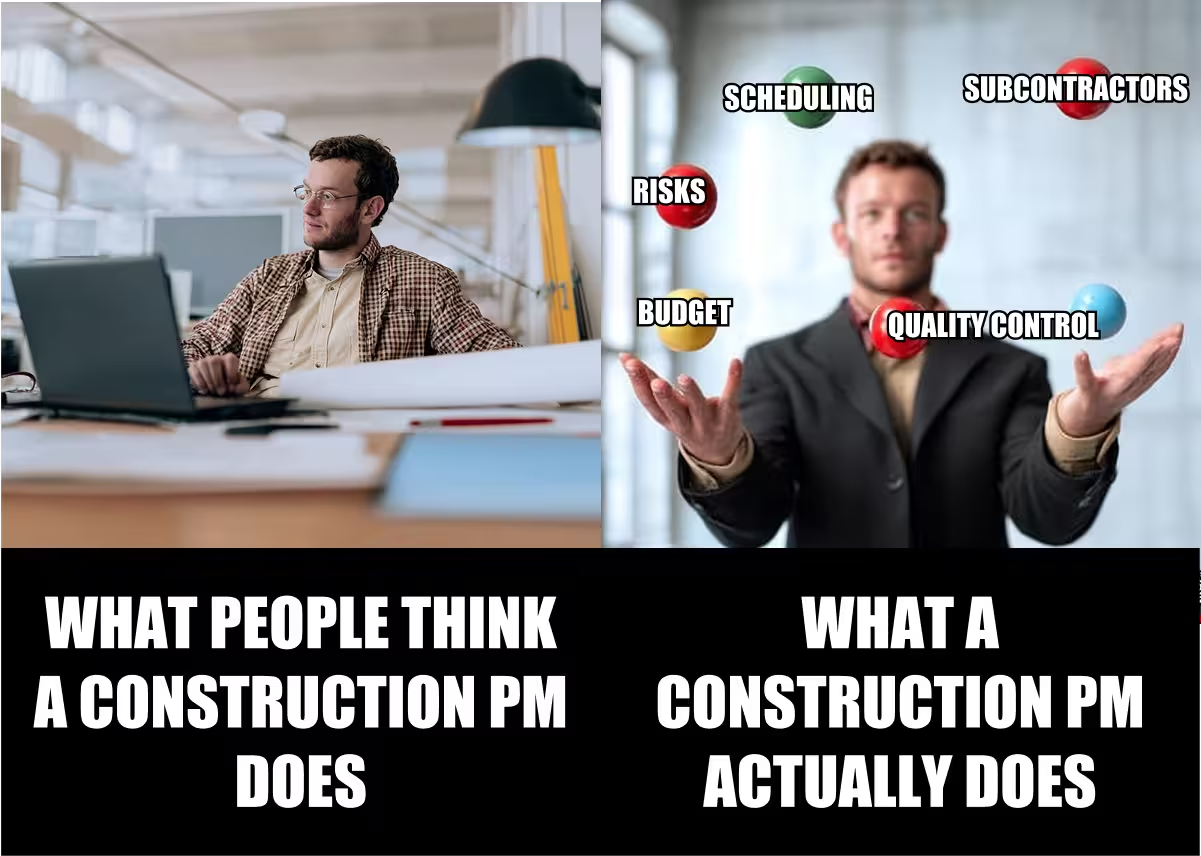
Throughout their careers, good construction project managers continue to refine their management skills. This "toolbox" of abilities is crucial when project complexities arise. Key skills include:
Leadership and Team Management.
The skill to lead and inspire team members. This includes giving tasks to a diverse group of professionals.
Communication
Clear communication with contractors, clients, and team members is vital for a smooth construction process.
Problem-Solving
The dynamic nature of a construction site means challenges are inevitable. A successful CPM is adept at finding swift and efficient solutions.
Attention to Detail
Precision is paramount in construction projects. A keen focus on details can prevent costly errors and delays. Construction management software can provide key performance indicators to track progress.
Decision-Making
CPMs often make quick, impactful decisions. Weighing options and considering risks are crucial for successful outcomes.
Effective communication is arguably the most critical skill for a construction project manager. It minimizes delays, mistakes, and cost overruns. Here are strategies for better communication:
Hold Regular Meetings
Daily check-ins or stand-up meetings help teams connect, share plans, and identify immediate issues.
Use Digital Tools
A good construction project manager leverages digital tools. Construction scheduling software helps create adaptable project schedules, keeping everyone on track. Project analytics offer insights into progress and budget, enabling faster, more informed decisions.
Be Accessible
Make yourself available to your construction team for questions and encourage them to voice concerns.
Clear Documentation
CPMs depend on clear documentation. Centralized document management ensures everyone has access to the latest plans, preventing rework.
Good time management is a big part of a construction project manager's job. It helps prevent delays that can cause extra costs or harm their reputation. Here are some tips:
Construction Scheduling and Planning Software: To plan out a project holistically, work proactively and turn projects over on time.
Set Realistic Timelines: Begin with a clear project schedule with achievable milestones and deadlines.
Monitor Progress: Continue to track each phase of the project and address delays promptly. Scheduling software can help the team adjust the timeline to stay on track.
Prioritize Tasks: Concentrate on the most critical tasks to ensure your team is working efficiently on high-priority activities.
Buffer Time (AKA float or slack): Include buffer time for unexpected issues, but also have contingency plans to minimize delays.
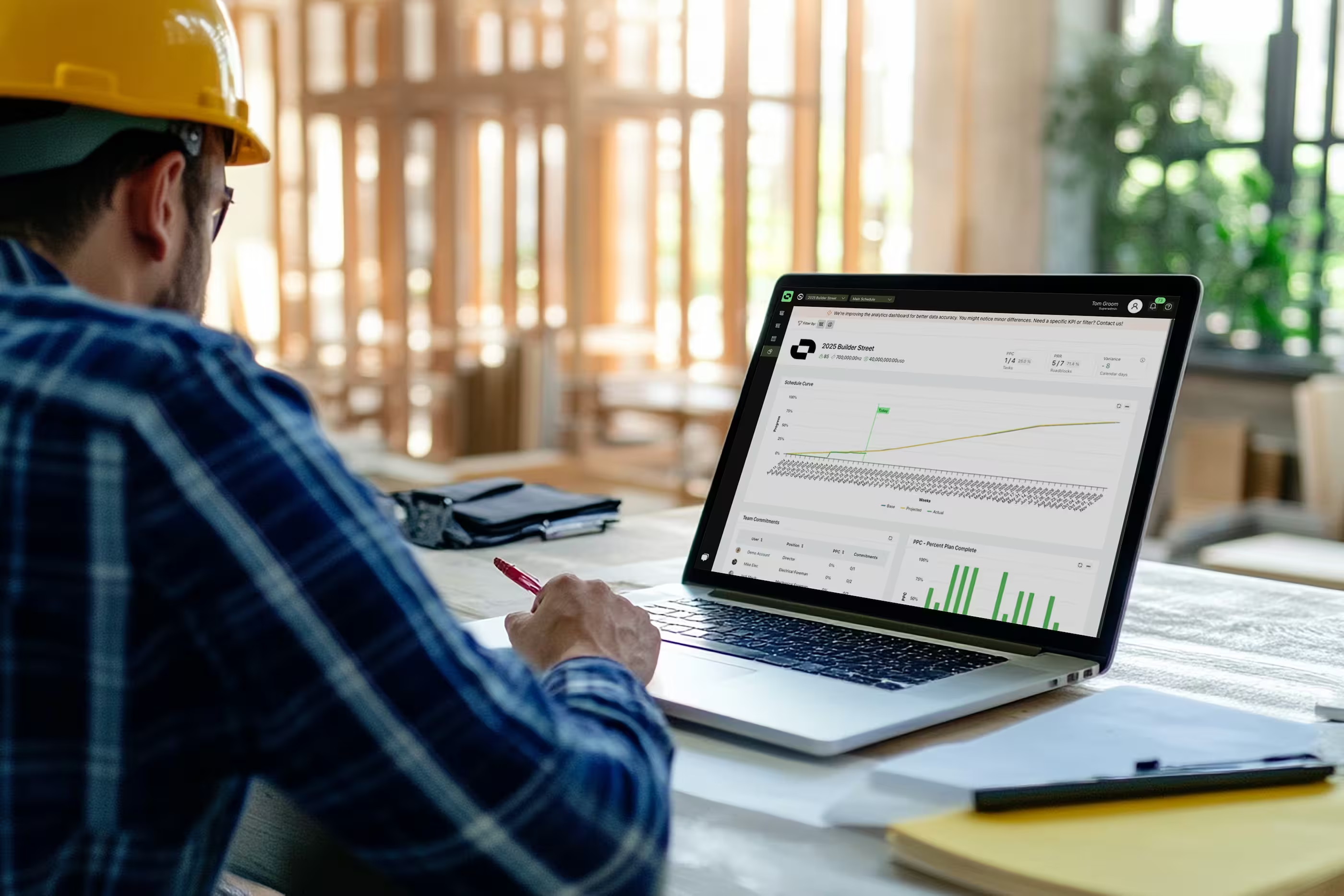
Without diligent budget management, costs can quickly spiral. Construction project managers need a solid grasp of budgeting to prevent this.
Create a Detailed Budget: First, write down all expected costs, like materials and labor. Also, set aside some extra money for emergencies.
Track Costs Regularly: Use construction management software to monitor expenses in real-time, helping to prevent cost overruns.
Avoid Scope Creep: Keep the project scope by following the original plan. Only make changes if they are necessary and written down in change orders.
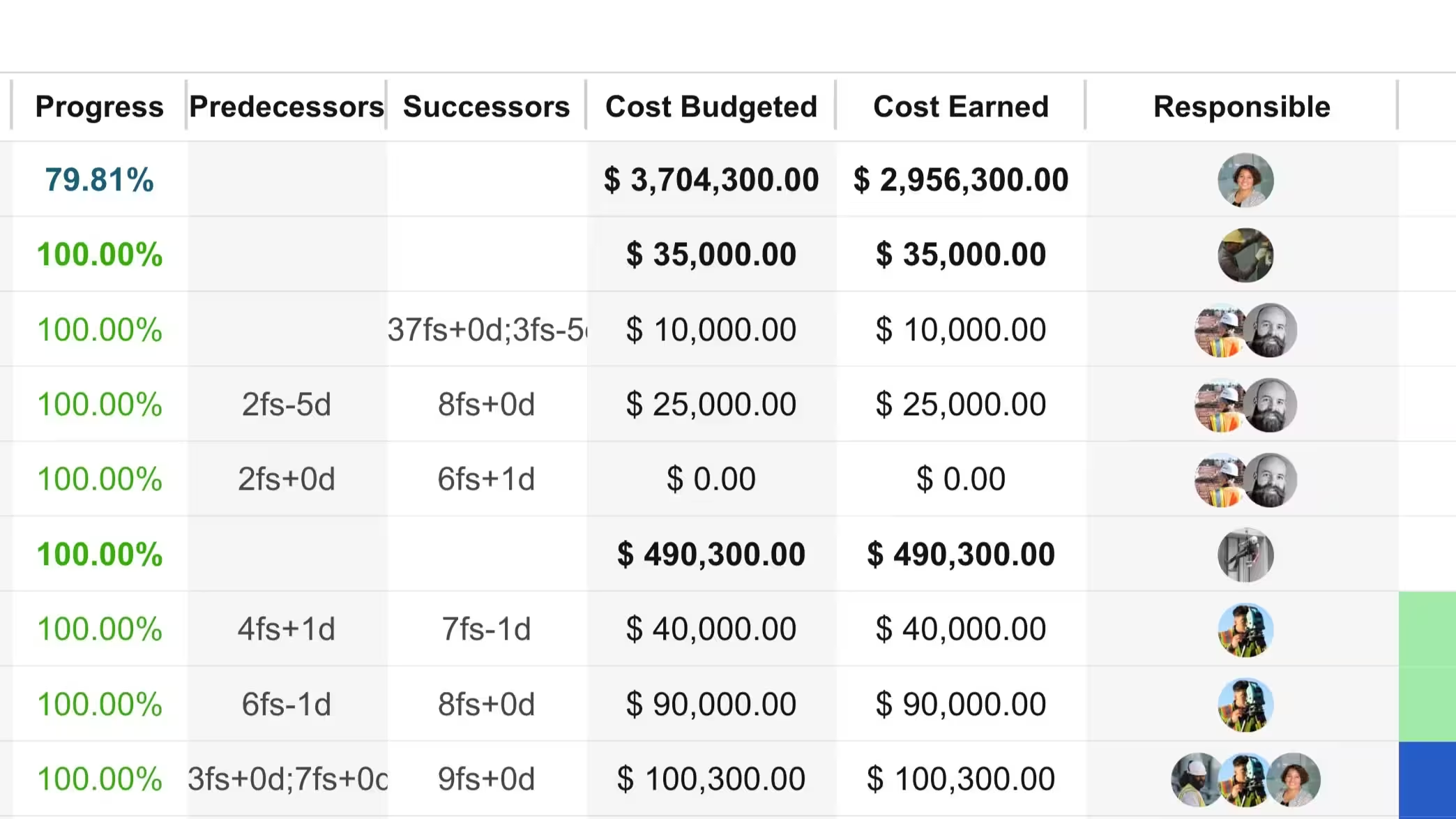
CPMs are responsible for navigating regulatory compliance and upholding safety standards to protect workers and the project.
Know Local Codes: Familiarity with local building codes and environmental regulations is essential to prevent legal issues.
Ensure Worker Safety: Prioritize safety by implementing training programs and enforcing the use of personal protective equipment (PPE).
Schedule Inspections: Proactively schedule necessary inspections at various stages to avoid delays.
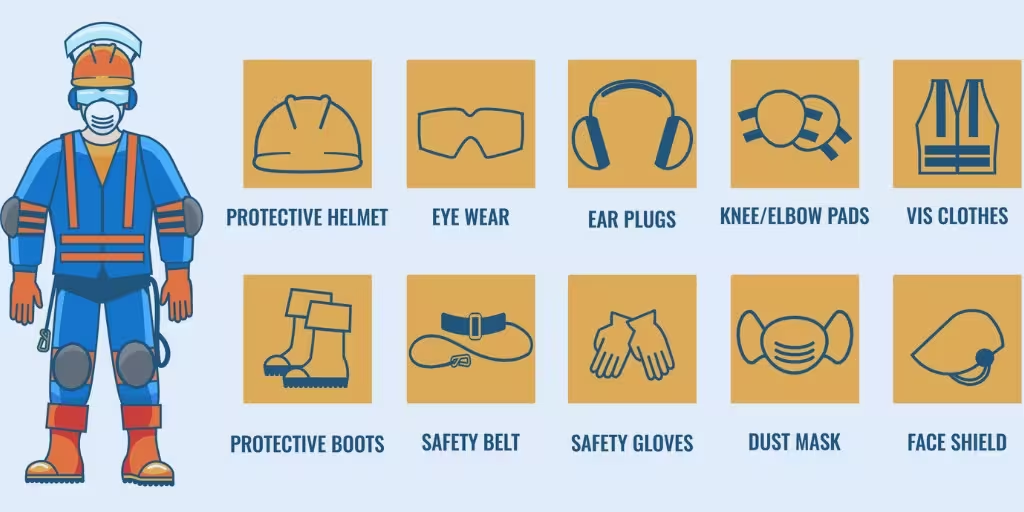
Technology is a vital tool in modern construction project management. It can streamline scheduling, budgeting, and communication.
Project Execution Software: Holistic construction management software help you manage RFIs, submittals and budgets in one place. It improves communication and supports better workflows.
Drones and 3D Modeling: Drones help with site surveys. 3D modeling shows what the project will look like. This reduces the risk of costly mistakes.
Mobile Apps: Many construction project management apps for mobile devices help teams stay connected. They also provide real-time information from different job sites.
Scheduling Software: This software helps ensure efficient timelines and helps finds the most important path to reach goals. This allows teams to work faster and make fewer mistakes.
Conflicts are inevitable on any project. How you manage them is a measure of your effectiveness as a construction project manager.
Act Quickly: Address issues as soon as they arise to prevent them from escalating and disrupting the project.
Stay Neutral: Remain impartial when resolving disputes. Listen to all sides to foster a collaborative environment.
Use a Formal Dispute Resolution Process: If needed, follow the formal process outlined in the project contract.
Managing stakeholders like clients, architects, and subcontractors is a tough but important part of being a good construction manager.
Provide regular updates on the project's progress and budget. Also, managing their expectations regarding timelines, costs, and potential risks is important.
What is the difference between a construction project manager and a construction manager?
The main difference is in the scope of their roles.
A construction project manager handles the entire project from beginning to end. This includes planning, budgeting, scheduling, and communication with the client and other key stakeholders.
A construction manager, on the other hand, is often hired by the owner to monitor the work and make sure the general contractor stays on track.
How to be a successful construction project manager?
To be a successful construction project manager, one must blend technical knowledge with strong relational abilities. This includes developing strong leadership skills to motivate the construction team and clear communication to keep all stakeholders aligned. Effective time management, problem-solving, and the ability to manage projects within budget are also critical.
Being open to learning and keeping up with industry trends and technology helps projects succeed over time. A bachelor's degree in a related field is often a starting point for a career in a construction firm.
How to be a successful construction manager?
A successful construction manager excels at the hands-on management of the construction site. This requires a deep understanding of construction methods, materials, and safety protocols. Strong leadership is needed to direct and coordinate construction workers and subcontractors effectively.
They need to be good planners and schedulers. This helps the construction process run smoothly and finish on time. Being present on the job site is crucial for monitoring progress, ensuring quality, and addressing issues as they arise.
How to Be a Better Construction Project Manager?
The construction industry is constantly evolving with new techniques, materials, and technologies. To be a successful construction manager, you must stay current.
Attend Workshops and Seminars: These events provide networking opportunities and keep you updated on the latest trends.
Read Industry Publications: Stay informed through trade journals, blogs, and online resources.
Seek Mentorship: Learning from experienced construction project managers and superintendents can provide valuable insights for career growth.
Are you ready to ensure project success and that your projects are completed on time? Check out how Outbuild can help you reach your goals. Schedule a demo today or try Outbuild out with a 14-day free trial.
Effective communication is arguably the most critical skill for a construction project manager. It minimizes delays, mistakes, and cost overruns. Here are strategies for better communication:
Hold Regular Meetings
Daily check-ins or stand-up meetings help teams connect, share plans, and identify immediate issues.
Use Digital Tools
A good construction project manager leverages digital tools. Construction scheduling software helps create adaptable project schedules, keeping everyone on track. Project analytics offer insights into progress and budget, enabling faster, more informed decisions.
Be Accessible
Make yourself available to your construction team for questions and encourage them to voice concerns.
Clear Documentation
CPMs depend on clear documentation. Centralized document management ensures everyone has access to the latest plans, preventing rework.
Good time management is a big part of a construction project manager's job. It helps prevent delays that can cause extra costs or harm their reputation. Here are some tips:
Construction Scheduling and Planning Software: To plan out a project holistically, work proactively and turn projects over on time.
Set Realistic Timelines: Begin with a clear project schedule with achievable milestones and deadlines.
Monitor Progress: Continue to track each phase of the project and address delays promptly. Scheduling software can help the team adjust the timeline to stay on track.
Prioritize Tasks: Concentrate on the most critical tasks to ensure your team is working efficiently on high-priority activities.
Buffer Time (AKA float or slack): Include buffer time for unexpected issues, but also have contingency plans to minimize delays.

Without diligent budget management, costs can quickly spiral. Construction project managers need a solid grasp of budgeting to prevent this.
Create a Detailed Budget: First, write down all expected costs, like materials and labor. Also, set aside some extra money for emergencies.
Track Costs Regularly: Use construction management software to monitor expenses in real-time, helping to prevent cost overruns.
Avoid Scope Creep: Keep the project scope by following the original plan. Only make changes if they are necessary and written down in change orders.

CPMs are responsible for navigating regulatory compliance and upholding safety standards to protect workers and the project.
Know Local Codes: Familiarity with local building codes and environmental regulations is essential to prevent legal issues.
Ensure Worker Safety: Prioritize safety by implementing training programs and enforcing the use of personal protective equipment (PPE).
Schedule Inspections: Proactively schedule necessary inspections at various stages to avoid delays.

Technology is a vital tool in modern construction project management. It can streamline scheduling, budgeting, and communication.
Project Execution Software: Holistic construction management software help you manage RFIs, submittals and budgets in one place. It improves communication and supports better workflows.
Drones and 3D Modeling: Drones help with site surveys. 3D modeling shows what the project will look like. This reduces the risk of costly mistakes.
Mobile Apps: Many construction project management apps for mobile devices help teams stay connected. They also provide real-time information from different job sites.
Scheduling Software: This software helps ensure efficient timelines and helps finds the most important path to reach goals. This allows teams to work faster and make fewer mistakes.
Conflicts are inevitable on any project. How you manage them is a measure of your effectiveness as a construction project manager.
Act Quickly: Address issues as soon as they arise to prevent them from escalating and disrupting the project.
Stay Neutral: Remain impartial when resolving disputes. Listen to all sides to foster a collaborative environment.
Use a Formal Dispute Resolution Process: If needed, follow the formal process outlined in the project contract.
Managing stakeholders like clients, architects, and subcontractors is a tough but important part of being a good construction manager.
Provide regular updates on the project's progress and budget. Also, managing their expectations regarding timelines, costs, and potential risks is important.
What is the difference between a construction project manager and a construction manager?
The main difference is in the scope of their roles.
A construction project manager handles the entire project from beginning to end. This includes planning, budgeting, scheduling, and communication with the client and other key stakeholders.
A construction manager, on the other hand, is often hired by the owner to monitor the work and make sure the general contractor stays on track.
How to be a successful construction project manager?
To be a successful construction project manager, one must blend technical knowledge with strong relational abilities. This includes developing strong leadership skills to motivate the construction team and clear communication to keep all stakeholders aligned. Effective time management, problem-solving, and the ability to manage projects within budget are also critical.
Being open to learning and keeping up with industry trends and technology helps projects succeed over time. A bachelor's degree in a related field is often a starting point for a career in a construction firm.
How to be a successful construction manager?
A successful construction manager excels at the hands-on management of the construction site. This requires a deep understanding of construction methods, materials, and safety protocols. Strong leadership is needed to direct and coordinate construction workers and subcontractors effectively.
They need to be good planners and schedulers. This helps the construction process run smoothly and finish on time. Being present on the job site is crucial for monitoring progress, ensuring quality, and addressing issues as they arise.
How to Be a Better Construction Project Manager?
The construction industry is constantly evolving with new techniques, materials, and technologies. To be a successful construction manager, you must stay current.
Attend Workshops and Seminars: These events provide networking opportunities and keep you updated on the latest trends.
Read Industry Publications: Stay informed through trade journals, blogs, and online resources.
Seek Mentorship: Learning from experienced construction project managers and superintendents can provide valuable insights for career growth.
Are you ready to ensure project success and that your projects are completed on time? Check out how Outbuild can help you reach your goals. Schedule a demo today or try Outbuild out with a 14-day free trial.
Frequently Asked Questions
Related Articles
Ready to see Outbuild?
Join hundreds of contractors from 10+ countries that are saving money by scheduling better
We’ll be in touch soon!





